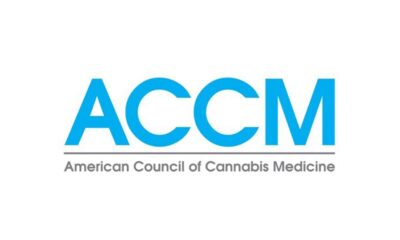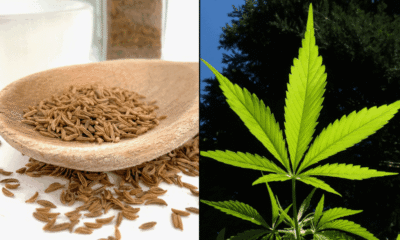The number of strains in our database that contain sexy puns would blow your mind, Leafly Nation. But it makes sense—cannabis and the erotic have gone together since time immemorial, just consult the Chinese medical texts that cite it as an aphrodisiac, the Reefer Madness films that paint it as a sinful stimulant, and the latest chapter of research that indicates cannabis use leads to a high rate of satisfaction.
The orgasm gap between men and women remains, with a recent study in the academic journal Sexual Medicine indicating women orgasm far less than men throughout their lives. We think that’s absolutely tragic. Smoking and ingesting cannabis has shown to increase desire and satisfaction across gender and age groups, but not everyone wants to, or can, light up before knocking boots. A cannabis- or hemp-infused lubricant, however, can help deliver site-specific effects of tingling, warming, moisture and increased sensitivity due to vasodilation.
We found the best weed lubes on the market right now, with a range of formulations and potencies to suit any position, proclivity, and passion.
Related
How to order weed delivery online with Leafly
Best weed lubes—THC-infused
These lubricants contain THC, and most are formulated for safe ingestion as well as topical use—just be mindful that ingesting THC may impact a drug test. Since cannabis is still a Schedule I substance, you can only buy these lubes in certain states. Most are California exclusives, with a couple in Oregon, Arizona, and Maryland. Maybe you need to plan a Valentine’s Day trip to pick some up.
Autumn Brands Passion Primer Intimate Serum

Autumn Brands’ Now Melt brand was designed as a self-care line of products that encourage us to slow down and melt into the moment—and sensual self-care is part of that. Their Passion Primer serum is an aloe-based gel that creates moisture while the 200 mg THC increases sensitivity. No oil in the formula means it’s latex compatible, but avoid using it rectally. (California)
Curio Oh! Intimacy Oil
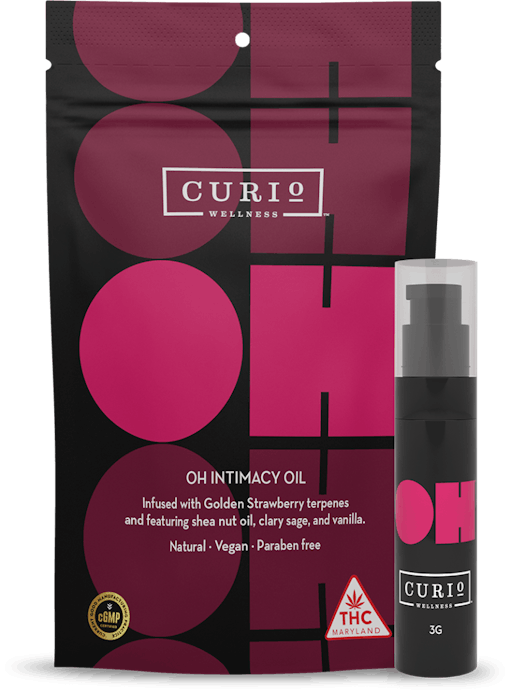
Curio, Curio, wherefore art thine orgasms, Curio? The Maryland-founded, now interstate cannabis company does just about everything well: flower, edibles, vapes, and medicinal products like capsules and tinctures. Their Oh! oil proves they understand what their consumers want—a decadent, THC oil that’s a feast for the senses. Oh! has a coconut oil and shea butter base, with the addition of THC, a few botanicals, and essential oils. We recommend patch testing in case of reaction for anyone with sensitive skin. (Maryland)
Proof Cannabis Lube
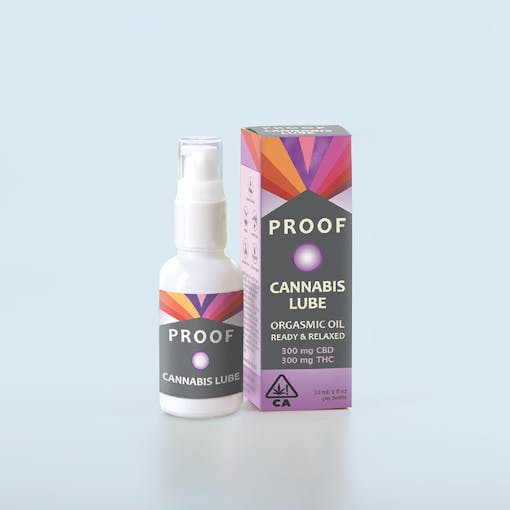
Proof Cannabis does high potency well—high dose tinctures, capsules, and topicals. Their new lubricant, called “orgasm oil,” is also potent, with 300 mg each of THC and CBD. As an oil, it’s not latex-safe, and the base of grape seed oil makes for a lighter, less greasy finish than other products that use butters or thicker oils like coconut. (California)
Lavinia oh.hi silicone lubricant
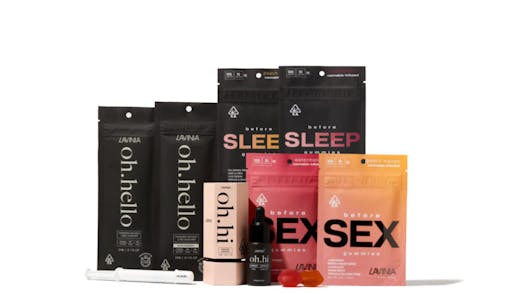
We interviewed Lavinia’s founder Katie Enright back in 2023, when she was launching her unique, silicone-based cannabis lubricant. Enright wanted to be a nun, before she found the gospel of cannabis, and her congregation is now one of pleasure seekers. Using silicone instead of water or oil means high efficacy and applicability—just remember to cleanse after use. Her product has expanded to include an applicator for deeper, more precise distribution, and a line of “Kinky Bites” and “Goodnight Kiss” infused gummies formulated to eat before and after all kinds of horizontal tangos. (California)
Liquid Flower Day and Night lubricant

Speaking of the best weed lubes—Liquid Flower has won Emerald Cup awards for their topicals that target muscle soreness, and their Day and Night Lubricant brings that same sensibility to your erogenous zones. Liquid Flower recommends applying the lubricant at least 15 minutes before getting down to business for the full effects of warming, increased circulation and heightened pleasure. This is a shea butter-based lubricant, with plenty of oils like rosehip and coconut thrown in, so it’s not compatible with condoms. It also contains essential oils for fragrance, so we recommend patch testing before use to avoid any irritation. (California)
Luminous Botanicals Dew Sensual Oil
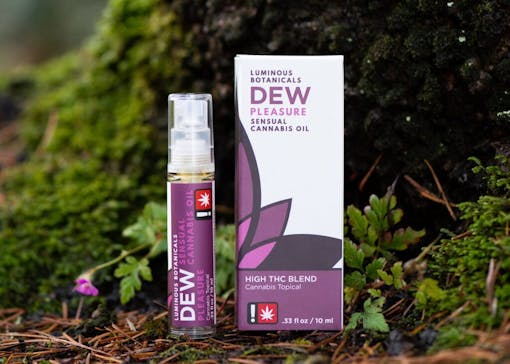
Luminous Botanicals sheds a light on the lack of pleasure in our lives, and how to seek it out. Their Dew line has two formulas, Pleasure and Comfort, depending on your needs—Pleasure is THC dominant whereas Comfort is a 1:1 blend, and each contains 250 mg total cannabinoids. The spray bottle packaging allows for precise or liberal application. (Oregon)
Kush Queen lubricant

What can we say that hasn’t been said? Kush Queen was one of the first cannabis brands to release a lubricant, and they’ve endured with a range of products that includes bath bombs, gummies, scrubs, and topicals. They offer both a THC lube and a CBD lube, both water-based, so you can choose your own adventure or play with both. While some products are only available in California, you can order non-THC products directly from the Kush Queen website. (California)
High Desert Pure Massage Oil

Call it a happy-ending massage. High Desert Pure’s massage oil pulls double duty as a post-workout massage aid (or any time you feel sore), and an intimate massage emphasizer. With 800 mg total of THC and CBD, a little goes a long way. This is fragrance-free with a coconut oil base, so it’s safe for sensitive skin. (Oregon)
Sublime Stoney Yoni oil
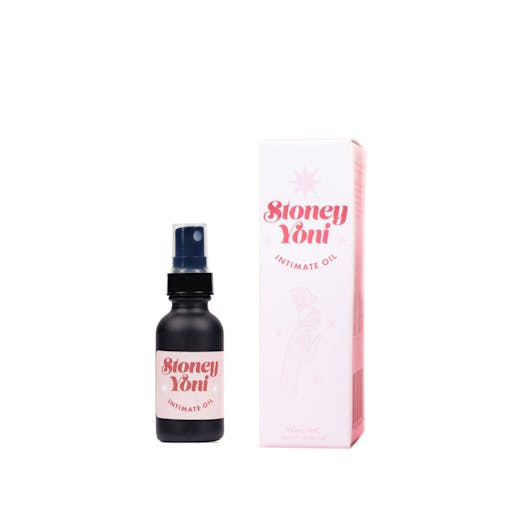
Sublime keeps their topical oil, meant to “get your vagina stoned,” very simple—just coconut oil and cannabis oil, with 160 mg THC. This straightforward formula means it can multitask as a massage oil or be used to spike sensitivity on other parts of the body, like the chest, back, and other erogenous zones. (Arizona)
Best weed lubes—CBD and hemp
These lubricants forgo THC, so you can buy them just about anywhere within the US.
Blow by Bawdy

Bawdy indeed—these oils cut right to the chase. Bawdy’s ethos combines cannabinoids and sexual charge, and their three oil-based lubricants complement the spectrum of arousal. Blow, perhaps obviously, formulated for, ahem, oral use, with 500 mg CBD and 100 mg CBG. Royal Blow and Astro Blow can be used all over the body, and you can even use them together.
Toca Toto oil

Toca means touch in Spanish, and the founders of Toca want you to touch all over, as much as you want. Toto is the vulva formulation, while their Qulo works better for the back door. Both use CBD to help decrease inflammation and lubricate erogenous zones in the body. Just remember, you can’t use them with condoms.
Quanna Oomf CBD lube

This water-based lubricant puts, literally, a little oomf in your bedroom routine. There’s no oil in this water-based formula to ruin condoms or toys, and they provide third-party testing. No THC in this one, but you’ll still get CBD’s anti-inflammatory and soothing properties so prep you for any kind of sensual situation.
Quim Smooth Operator
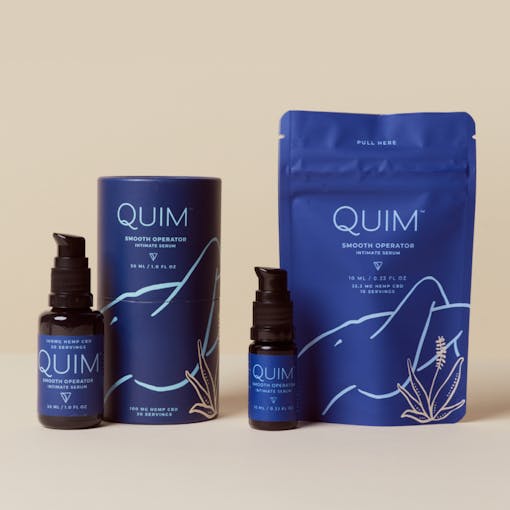
Quim (we’ll let you look up what that means) has been around for years with a singular purpose—to give your nethers the best experience possible. Their Smooth Operator (water-based) is their topical serum targeted at sexual satisfaction, while Happy Clam (oil-based) is like skincare. Both products now exclusively use CBD, but the results speak for themselves—big O’s all around.
Skinny Hippie Weed Lube

Finally, a water-based option! Skinny Hippie’s Happy Endings lube uses another plant, aloe vera, as the base, with a minimal ingredients list and no fragrance. With 100 mg each of THC and CBD for increased blood flow and relaxation, the brand recommends only a couple drops at a time. This is a hemp-derived formulation, and is third-party tested to ensure accurate and uncontaminated ingredients. Skinny Hippie also offers an oil-based version, suppositories, and CBD-only formulas.
And that’s a tour through the best weed lubes on the market these days.









